National State, Political Modernism, and Sacred Symbols
Fatherland, united dream, national state, and divinely granted freedom—these were the issues discussed in the latest debate of the "Identity and Values" series at Ayb School on April 20, titled "State or National State?"
The participants of the discussion included Vasken Yacoubian, president of the Armenian General Benevolent Union (AGBU) Armenia, Fr. Mesrop Aramian, priest and theologian of the Armenian Apostolic Church, and Dr. Artur Atanesyan, a political scientist and professor.
Here are some highlights from the meeting presented by MediaMax.
State and Nation Are Inseparable
Fr. Mesrop: It is impossible to separate the state from the nation. It is possible for a nation to exist without a state, but a nation that does not strive to have a state, to live independently, and to realize its freedom is doomed.
You may temporarily lack a state, but at the same time, you can keep that vision, that dream, and fight to gain the right to act freely. And that right is divinely granted.
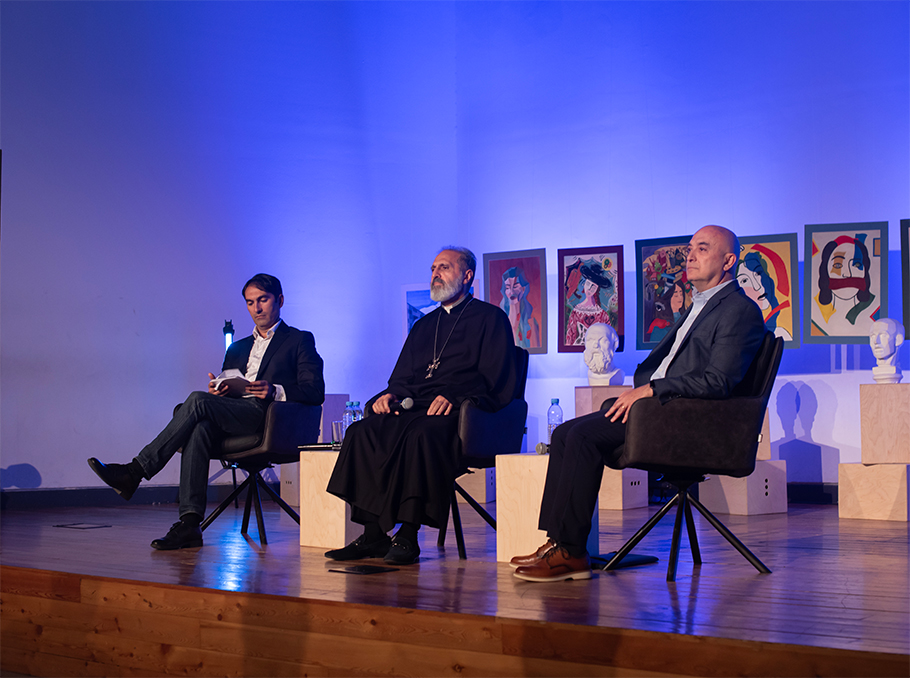
What Price Are We Willing to Pay?
Artur Atanesyan: For me, the question "State or national state?" sounds like this: imagine a hungry man who has no money goes to a restaurant and is asked what he wants—black caviar, red caviar, or eggplant caviar. He has no money, so everything is caviar for him.
Now, in our current situation, any state is good for us, because the alternative is a failed state, which resembles our current situation. A failed state is one where the state cannot ensure the defense of its own borders, where the institutions lack confidence, and 60% of the population is not willing to engage in politics and is nihilistic.
The transition from a failed state to any type of state is already an improvement, whether it's based on the Russian, Chinese, Israeli model, or a national state—it depends on what price we are willing to pay for it.
The Greek political leader Themistocles, 5thcentury BCE, said, "We would perish if we did not sacrifice." In other words, sacrifices are necessary to avoid destruction.
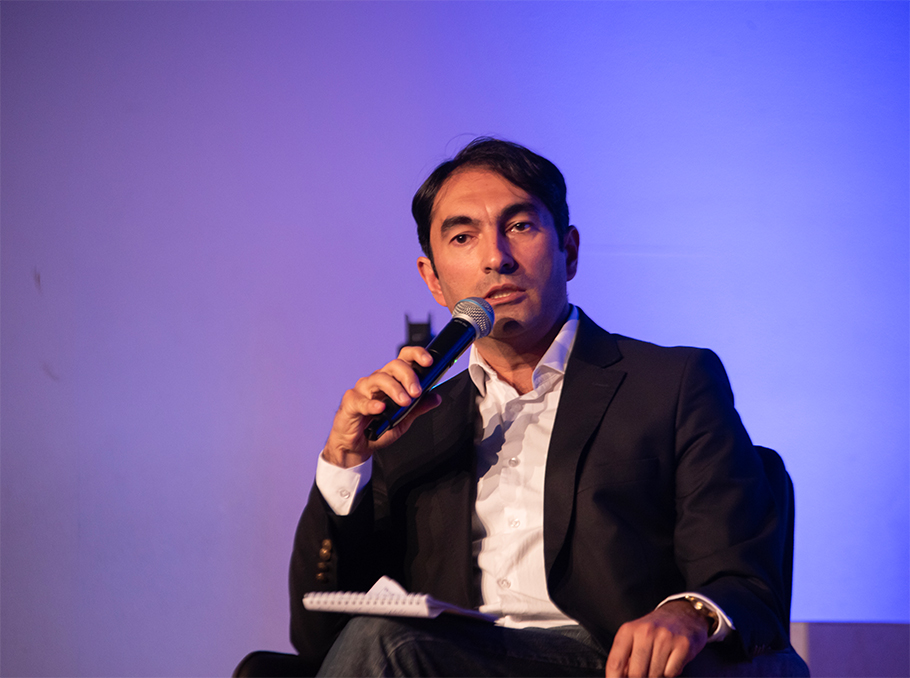
In Armenia today, we speak of two approaches: maximalist and minimalist. Our authorities favor the minimalist approach, saying we should preserve what we have.
The maximalist approach is our dream—we want what we had. But what is right? The right thing is what we are willing to pay for.
Political Modernism Contradicts the Holy Scriptures
Fr. Mesrop: Unfortunately, nowadays, there are attempts to take away the most important components of our identity, the ones that have kept us as a nation, a strength, a mission, as a participant in the history of humanity. These discussions are not new; they are responses to political modernism and liberalism. Questions are raised about whether the nation should be considered a unity of people who share a common religion, language, culture, history, and heritage, or whether it is simply a socio-political union based on a contract for a specific territory, with citizenship and the freedom for the individual to choose which nation they belong to.
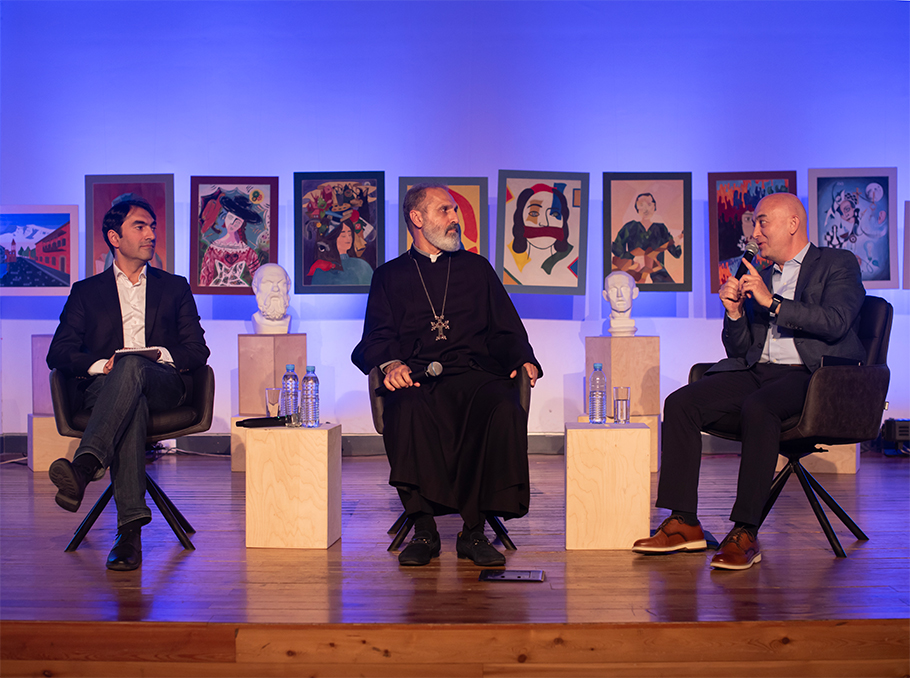
Obstacles to the National State
Vasken Yacoubian: All states cultivate solidarity among their citizens to strengthen themselves. Today, we face very serious existential problems, the most important of which is the lack of unity.
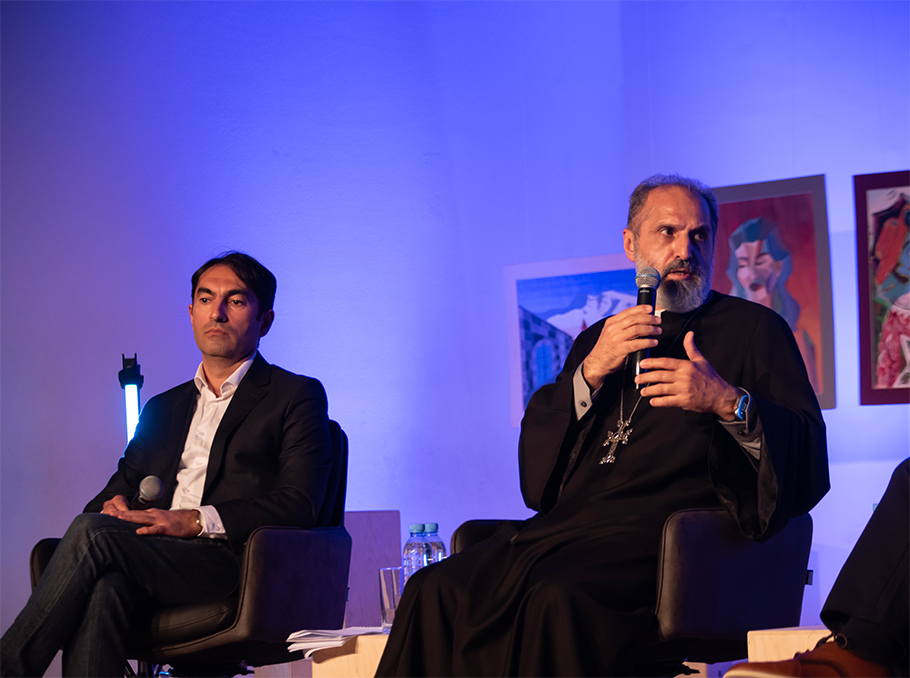
Artur Atanesyan: Today, we see a phenomenon called slacktivism, where people show activity via the internet from their homes or cafes, thinking that this contributes to reality. We also saw thisduring the loss of Artsakh, when people were liking the photo of the "Grandparents" statue on social networks, thinking they were protecting the value this statue represents. This is a comfort approach. We treat the state and the homeland in the same way—talking about the homeland, but doing nothing for it.
Sacred Symbols
Fr. Mesrop: The homeland is an absolute and sacred value given to nations by God, which is very important to also consider from the perspective of symbols. Mount Ararat is an inseparable part of our homeland’s perception, and no one can take it from us. The Holy Scripture calls us the land of Ararat, the Kingdom of Ararat before we are even called Armenians. This is recorded in prophecies, and God has spoken through the prophets.
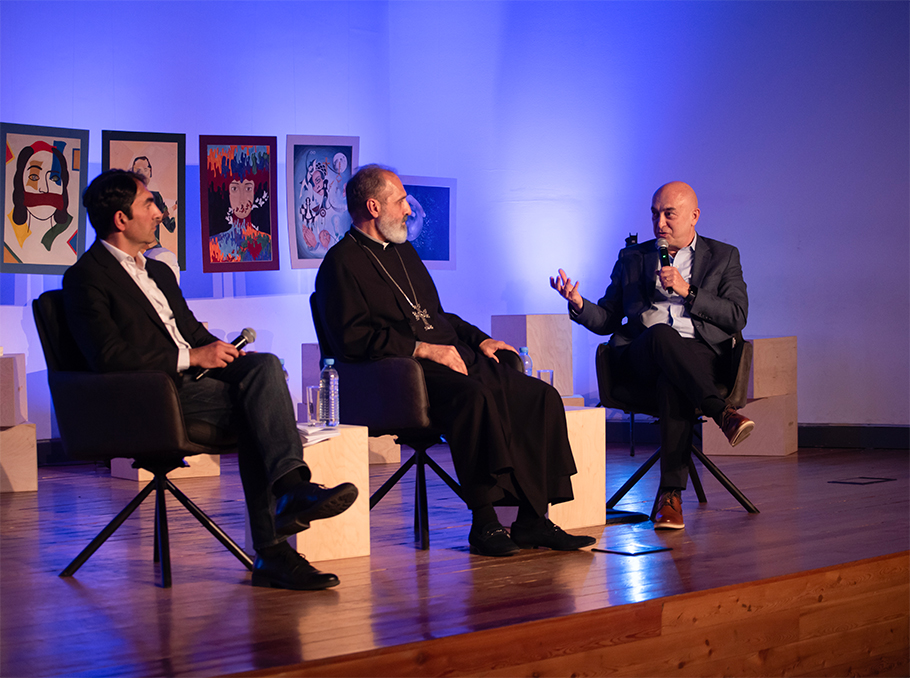
What God has given, man cannot take away from us. Questioning sacred symbols, not to mention mocking them, is a terrible crime.
Artur Atanesyan: Today, the main message coming from above is that if we do not have a real state, we should not think about having an imaginary state. This is definitely wrong because not only the factory for creating all these messages is not in Armenia but it is also directed against us.
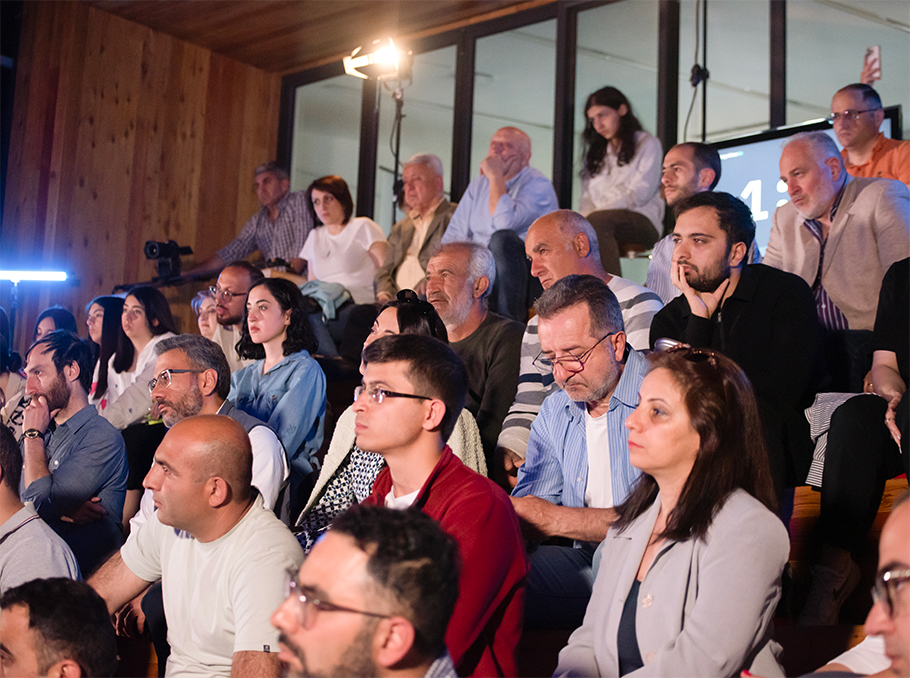
Imagine telling a child from a young age that Santa Claus doesn’t exist. How will we help that child? We deprive them of their childhood, of big ideas, of the possibility to grow wings. When we hear the message that we should not look at Ararat because we cannot reach it, we must definitely understand that they want to deprive us of our wings so that we do not become a winged nation. There are only two options: either you crawl, or you fly.
Fr. Mesrop: The existence of a people is not just a physical heritage. A people, a nation, means spiritual strength, a unified belief, not only history and heritage but also a united mission and a united vision. Without this, the nation will cease to exist. To say that the vision of the homeland is in conflict with our current country is unacceptable and justifiably causes outrage among many.
The Third Republic—A Chain of Failed Projects
Artur Atanesyan: The state is a specific project based on two principles: labor division and mutual trust. Here, we are sitting with 50 people and must decide what each can do. Whoever is good at something should do it so that a state is built. If we think about which task is easier or more profitable, and everyone focuses only on that, we may create a caste of merchants, but we won’t build a state. This is exactly what we are doing—everyone is busy with business, even politics in our country has been state business starting from 1991, and nothing has changed until today.
If division of labor takes place, but there is no mutual trust, each person will think while doing their job, "Should I be doing this, since someone else is living better doing something else?" Injustice kills the idea of the state.
The history of the Third Republic is the history of failed projects. We failed the “nation-army” program, which is perfect for having a national state. We failed the “Artsakh-Armenia-Diaspora” triad approach. A triangle is always a stable figure in terms of security, but we took one corner away and continue to move towards taking away the others.
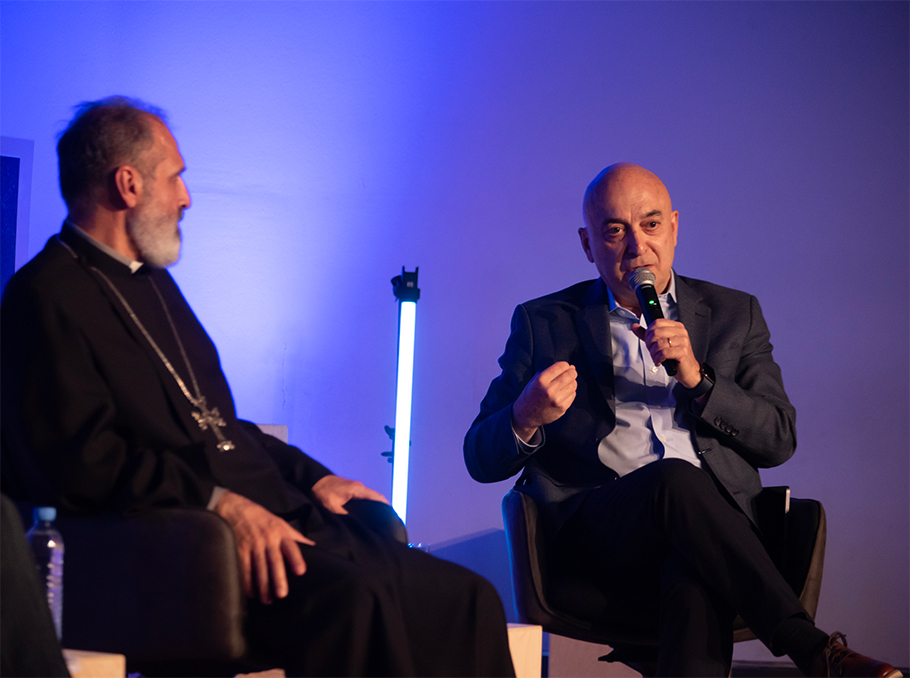
How to Move Towards a National State
Vasken Yacoubian: We have ideal data for having a national state. It is important first to understand who we are and where we want to go. For this, we need to develop a united vision and free ourselves from indifference.
Artur Atanesyan: What is needed for a national state? First, protected borders, not surrendered borders. Second, our own economy, not trade. Third, a growing population, not a declining one. Fourth, national self-awareness as well as national dignity and national pride. And the last one, from which we could have also started, is love, without which it is impossible to have a national state.
The Principle of Freedom and Its Distortion
Fr. Mesrop: The national state stems from an important biblical principle, which is set in creation. That is free will. A person is endowed with free will, and the best way for a person to realize themselves and succeed is through freedom. If you deprive a person of freedom, that person has no opportunity to realize themselves, to achieve something in life. The same principle equally applies to nations. Nations, as units, must have that freedom; it is their natural and sacred state of existence.
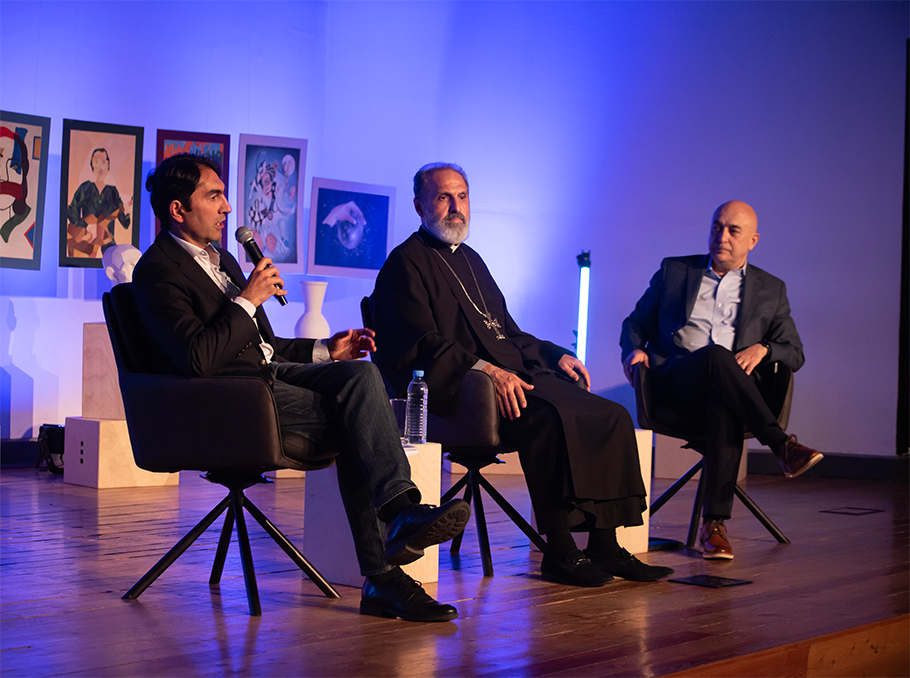
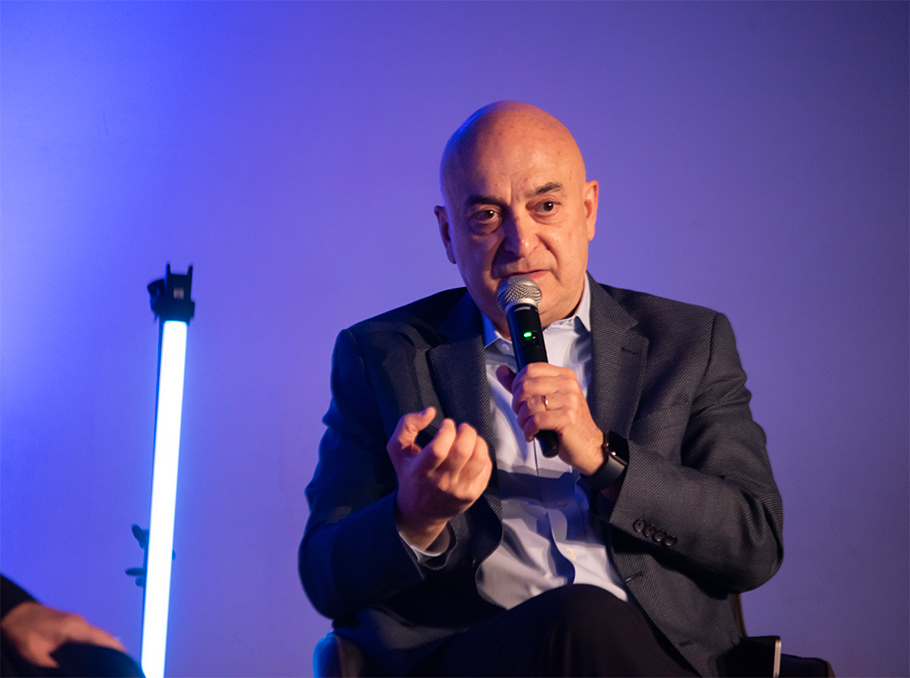
Fatherland Where the Soil is the Body of Our Fathers
Fr. Mesrop: It is interesting how different peoples perceive the concept of homeland. In English, “homeland” means your home; in Russian the word “родина” emphasizes the birthplace. The Armenian perception of homeland, fatherland, means the land of fathers, ancestors. We are one of the rare nations that know their genealogy, know where they come from. Our identity’s historical trajectory is clear to us, and the fatherland is a place where our fathers have lived.
According to spiritual beliefs, a human is made of earth, the earth is a sacred value, and when humans die, they return to the earth. That is, the fatherland is the bodies of our fathers; we walk on their bodies. They were sown in this soil, placed their strength in this soil, blessed us with their holiness and spirit of struggle, and we stand on our fathers. From this perspective, that soil becomes a sacred value, so by yielding land or bargaining with land, we lose our fathers’ blessings.
Written down and photographed by Gayane Yenokyan.